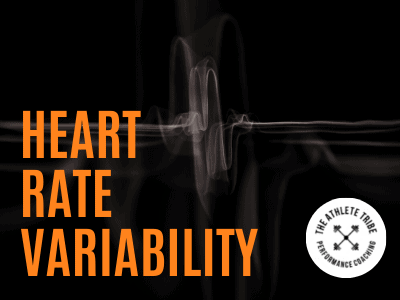WHAT IS HEART RATE VARIABILITY?
Everyone is talking about Heart Rate Variability (HRV) and how this measure can be used to improve performance.
Heart rate variability (HRV) refers to the variation in time intervals between successive heartbeats. It is a measure of the fluctuations in the heart’s rhythm, reflecting the changes in the activity of the autonomic nervous system (ANS) that regulates the heart’s function.
The ANS is composed of two branches, the sympathetic and the parasympathetic nervous system, that work together to control the heart rate and other physiological processes. The sympathetic nervous system activates the “fight or flight” response, increasing heart rate and blood pressure, while the parasympathetic nervous system promotes relaxation, reducing heart rate and blood pressure.
HRV is a useful tool to assess the balance between the sympathetic and parasympathetic nervous system activity. Higher HRV indicates greater variability in heart rate, reflecting a healthy balance between sympathetic and parasympathetic activity. Lower HRV, on the other hand, suggests reduced variability and an imbalance in the autonomic nervous system.
HRV is increasingly being used in sports and fitness settings to monitor athletes’ training and recovery. By tracking changes in HRV over time, coaches and athletes can adjust training intensity and volume to optimise performance and prevent overtraining.
HRV gives you a baseline to work on and monitor, both for work and training.
HOW CAN I IMPROVE MY HRV?
The ideal situation is to have a high HRV; it’s important to note that this is an individual result. But of course, we all compare results with each other. Let’s take a look at the practices that can help to increase your HRV.
HOW TO INCREASE HRV: 10 THINGS YOU CAN DO
1. Understand your training and how it affects you
Research has shown that regular exercise is one of the best modes to improve your HRV. But, it is also essential to know that HRV can be a great way to monitor your reaction to training and overtraining. Stress is great for the body and mind, but too much for too long is not optimal.
2. Understand the effect of nutrition and when you eat
Before starting to worry about when you are eating food, you must make sure that you are eating the right food in the right amounts. Of course, a healthy diet will affect your HRV. But eating at regular times and making sure that you do not eat too close to bedtime is essential. Remember that the human body loves rhythm.
3. Hydration levels
Your hydration level determines your blood volume, so reduced liquid intake will place greater stress on the heart. Thicker blood takes more effort to pump out and around the body. Remember that blood is carrying both oxygen and nutrition to the brain and body.
4. Think about the effects of alcohol
Alcohol has a significant effect on HRV; this is not only an immediate impact but also a longer-lasting effect (three to four days).
5. Sleep performance
It always comes back to sleep. Improved sleep performance is the most significant factor in heart rate variability. For us to get a good night’s sleep, we need to go to bed at the same time and get up at the same time each day. Establishing such a routine boosts your circadian rhythm and also enables you to spend more time in REM and slow-wave sleep.
6. Using light to your advantage
Sunlight plays a huge role in your circadian rhythm. Natural sunlight in the morning causes several different processes, such as improved energy, optimal hormonal production and vitamin D production. The opposite is true when it comes to nighttime and trying to fall asleep.
7. Coldwater therapy
There has been a lot of focus in the media around the practice of cold water therapy. Research has shown that brief exposure to the cold stimulates the vagus nerve and activates the rest and digest branch of the autonomic nervous system, known as the parasympathetic system.
8. Adding breathwork into your week
Controlled breathing impacts your heart rate variability positively. Even short practices of two to three minutes can affect. In one group of cognitive athletes I work with, breathwork showed significant benefits for work performance. Check out our resource of breathwork here and the video here.
9. Meditation
Any time that we can stop and relax will help with HRV. Therefore meditation and mindful practices can help with recovery.
10. Journaling
Writing down your thoughts and plans can help with reducing stress. Keeping a gratitude journal is an excellent tool for this; spending time writing down a few things you are thankful for can affect your heart rate variability.
Summary:
There might be several points here that have you thinking, “do they really have any effect?” We need to understand that it is a whole process. Training, eating and sleeping are critical for heart rate variability. However, there are lots of other things that we can build into your day to help. I use HRV as an assessment with the senior leaders that I work with; it helps us start the discussion and develop a performance plan.
I hope that you have enjoyed the resource on heart rate variability, HRV can be a useful tool for training and stress management.
Progression over perfection
Lee
Director and Founder


